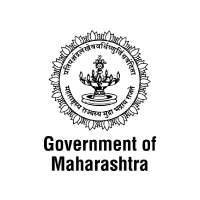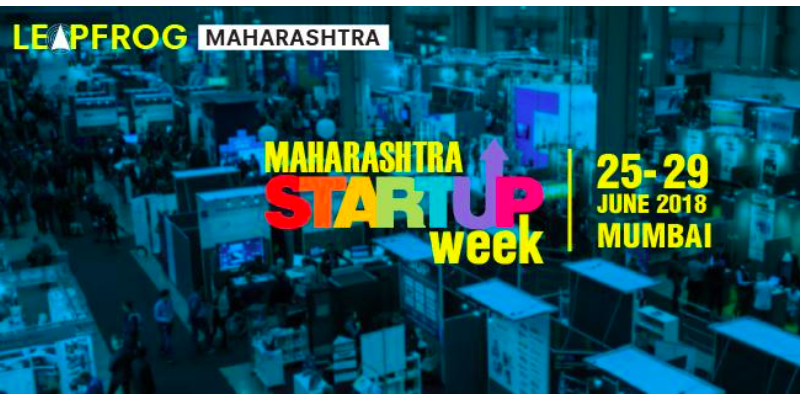
Government of Maharashtra
View Brand PublisherMaharashtra Startup Week will help map innovations happening across the state, says government
The Maharashtra Startup Week held late last month saw pitches from 100 state startups in various sectors. 24 winners stand to receive work orders from the government.
“In comparison to other states, Maharashtra’s startup policy , is probably the most comprehensive one,” a jury member at the Maharashtra Startup Week told us. The event venue buzzed with budding entrepreneurs, VCs, angel investors, and officials from banks, government, and academia, all in attendance to get a glimpse of the next generation of entrepreneurial talent in the state.
The Startup Week was the Government of Maharashtra’s inaugural effort to provide a platform to the state’s vast entrepreneurial talent, give wings to the best ideas and innovations in the form of concrete “work orders”, and have various stakeholders of the startup ecosystem connect and network with each other.

The 100 finalists made 30-minute pitches to a jury comprising venture capitalists, angels, incubators, academics, policy think-tanks, and finance and government officials. The government had earmarked a cash prize of Rs 15 lakh each for three winners in every domain.
“That is a sufficient amount for the development of products,” E Ravendiran, CEO of MSInS, told YourStory. “We can look to scale it up in future.”
Ravendiran said there were three main objectives behind Maharashtra Startup Week. “How can startups get a marketplace? How can the citizens benefit? And how can the government benefit from innovation happening in the state? Through this initiative, we hope to bring solutions to various problems and better deliver services to the citizens.
Supporting startups
The 24 winning startups will receive continued cooperation and support over the next 12 months; their products and services will be tested by the government. Apart from the winners, the government will also extend financial assistance to 10 other startups to help them develop a presence in international markets.
Ravendiran added, “This event also gives us an opportunity to map all the innovations happening across Maharashtra. We can use the database for future planning. Also, when the procurement is done by the government, it is easier for even the startups to scale up because the government is the biggest public procurement agency, after all.”
The participation and the variety of startups on display pleased the jury. The Maharashtra government too was credited for translating “talk into action”.
Jury member Swati Joshi, who’s a consultant at the Centre for Technology, Innovation and Economic Research (CTIER), a policy think-tank that assisted the State government in drawing up the startup policy, told YourStory,
“It is very heartening to see the government take proactive steps to help young startups. In this case, they are not just holding a competition; they are doing more by giving a concrete work order. A wide variety of really good startups has participated.”
She added, “The way the panel has been structured is also very interesting. If things do not work out with the government, the finalists will at least have the networks and the visibility. So, this platform provides that extra push to startups.”
The Maharashtra Government also roped in institutional partners such as the Tata Trusts’ Foundation for Innovation and Social Entrepreneurship (FISE), investor communities including Mumbai Angels and the Indian Angel Network, and incubators NASSCOM 10000Startups and Digital Impact Square (DISQ) to provide funding and mentoring support to the selected startups.
YourStory caught up with three startup founders who pitched on Day 2 of the event.
Renuka Diwan, Founder of BioPrime AgriSolutions (a biotech startup), said: “It is very exciting that the government is looking to partner with startups because it has a lot of connect and potential to expose us on a wider scale. That connect matters a lot. We can develop new products, but we need a channel partner, and there is nobody better than the government.”
She added,
“We were happy with the pitching process. Ample time was allocated. Usually such events offer time for a short elevator pitch. But here each startup is being given 15-20 minutes for a pitch, and 10-15 minutes for Q&A. We got a lot of good feedback from professionals in the agri sector.”
So, what were the questions that entrepreneurs were asked in the 30 minutes?
Mayur Tambe, Founder of Shrambhoomi Innovations (a rural agritech startup), said: “Everyone was aware of the problem we are trying to solve with our soil-testing product. The need was clear. So, the jury asked practical questions on how we could scale the innovation to multiple locations and whether farmers would benefit from it or not.”
“If we get support from government, we can take our product to tribal and marginal farmers and set up mini soil-testing labs in village clusters. That way we can also generate employment for the rural economy,” he added.
Does associating with the government lend credibility to an early-stage idea?
“It does,” said Janhavi Joshi, Founder of BleeTech Innovations (a startup in the healthcare space that calls itself the “customer service for hearing impaired”).
She said, “We realised that a lot of government schemes and services do not reach the deaf community. So, we wanted to create a product that makes it accessible to them via sign language content. But, the market is very scattered. There are no conventional methods to do this. We have been exploring ways to reach people. We wanted the content to be authentic and credible. So, we chose to work with government data.”
The Startup Week concluded on June 29. Work orders to the startups would be given over the next six to twelve months.









![[Startup Bharat] Y Combinator-backed BeWell Digital is enabling the digital transformation of radiologists](https://images.yourstory.com/cs/2/40d66ae0f37111eb854989d40ab39087/ImagesFrames31-1648033042143.png)

